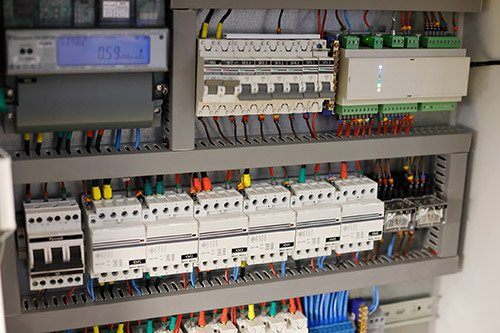3 Tips for Avoiding Electrical System Overloads in Your Warehouse
 |
|
Electrical system overloads can happen in any warehouse, whether new or old. You need to do what you can to avoid these damaging electrical problems. Here are some important ways you can keep electrical overloads at bay and avoid interruptions in your operations. 1. Plan for Upgrades and Equipment Changes Many warehouses will add or upgrade equipment over time. The new equipment may have different electrical requirements or consume more electricity. For example, an increase in business may prompt an increase in your refrigeration capacity. That new or upgraded equipment can tip the scales when it comes to how much electricity the warehouse can safely provide. You may understand a large upgrade can come with additional electrical requirements. Still, you can completely overlook the small upgrades you made in the warehouse over time. Those small upgrades add up, and they can easily cause the warehouse's electrical system to overload. Signs of a pending electrical system overload can include:
2. Pay Attention to Your Daily Operations Be aware of the stress your operations put on your various electrical systems. Even if your system can handle your typical load requirements, it might not have the ability to handle a gradual or sudden increase in operations. For example, your warehouse may go from a five-day operation to six. Or, the warehouse can add an extra, ongoing shift. This means your equipment will stay in operation for longer periods of time. Your electrical system may not have the capacity to accommodate those extra operating hours. Even if the system can theoretically handle the increase in operations, don't assume the system will transition to heavier use gracefully. The electrical system will have existing wear from handling the daily warehouse operations. The added stress will only cause the system to work harder and wear faster. The increase in operations will inevitably lead to issues and electrical system overload. Always make sure you have your electrical system serviced, maintained, and inspected before increasing operations. 3. Practice Prevention and Awareness An electrical overload can happen gradually, but it can also occur suddenly. You and everyone in your warehouse should practice preventive measures and stay alert for potential electrical issues. Some things you can and should do include:
Awareness means staying alert for sights, smells, and sounds that indicate an electrical problem. Give your crew the ability to quickly and easily report anything they feel isn't right, and follow up on their concerns. Also, consider building redundancy into your electrical system in the form of a backup circuit or generator. If an electrical malfunction occurs despite your efforts, you will have the capabilities to keep your core operations going. At Circle Electric, Inc., we can help you design an adequate electrical system for your warehouse or help maintain the electrical system you have. For professional commercial and industrial electrical services, contact us today. |
 |
|
Electrical system overloads can happen in any warehouse, whether new or old. You need to do what you can to avoid these damaging electrical problems. Here are some important ways you can keep electrical overloads at bay and avoid interruptions in your operations. 1. Plan for Upgrades and Equipment Changes Many warehouses will add or upgrade equipment over time. The new equipment may have different electrical requirements or consume more electricity. For example, an increase in business may prompt an increase in your refrigeration capacity. That new or upgraded equipment can tip the scales when it comes to how much electricity the warehouse can safely provide. You may understand a large upgrade can come with additional electrical requirements. Still, you can completely overlook the small upgrades you made in the warehouse over time. Those small upgrades add up, and they can easily cause the warehouse's electrical system to overload. Signs of a pending electrical system overload can include:
2. Pay Attention to Your Daily Operations Be aware of the stress your operations put on your various electrical systems. Even if your system can handle your typical load requirements, it might not have the ability to handle a gradual or sudden increase in operations. For example, your warehouse may go from a five-day operation to six. Or, the warehouse can add an extra, ongoing shift. This means your equipment will stay in operation for longer periods of time. Your electrical system may not have the capacity to accommodate those extra operating hours. Even if the system can theoretically handle the increase in operations, don't assume the system will transition to heavier use gracefully. The electrical system will have existing wear from handling the daily warehouse operations. The added stress will only cause the system to work harder and wear faster. The increase in operations will inevitably lead to issues and electrical system overload. Always make sure you have your electrical system serviced, maintained, and inspected before increasing operations. 3. Practice Prevention and Awareness An electrical overload can happen gradually, but it can also occur suddenly. You and everyone in your warehouse should practice preventive measures and stay alert for potential electrical issues. Some things you can and should do include:
Awareness means staying alert for sights, smells, and sounds that indicate an electrical problem. Give your crew the ability to quickly and easily report anything they feel isn't right, and follow up on their concerns. Also, consider building redundancy into your electrical system in the form of a backup circuit or generator. If an electrical malfunction occurs despite your efforts, you will have the capabilities to keep your core operations going. At Circle Electric, Inc., we can help you design an adequate electrical system for your warehouse or help maintain the electrical system you have. For professional commercial and industrial electrical services, contact us today. |





